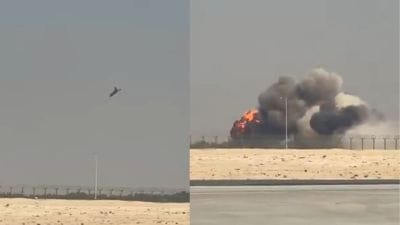Visits highlight improved standing of ‘Old Europe’ with White House
Shortly after Angela Merkel became chancellor of Germany two years ago, Bush told her about the frequent video-conferences...

Shortly after Angela Merkel became chancellor of Germany two years ago, Bush told her about the frequent video-conferences he held with then Prime Minister of Britain Tony Blair. Bush wanted to know — Would Merkel be interested in doing the same?
US technicians were soon installing the necessary equipment at Merkel’s offices and, according to White House and German officials, the two leaders began conferring regularly on Iran, Afghanistan, climate change, trade and other issues — one small sign of the warming of the once chilly relations between Bush and one of Europe’s biggest powers.
Four years after then Defense Secretary Donald Rumsfeld’s dismissive comments about European opposition to the war in Iraq, “Old Europe” is back, and the White House is trumpeting its strengthened transatlantic ties with two highly choreographed official visits this week.
New French President Nicolas Sarkozy, an unabashed admirer of the US, arrived in Washington on Tuesday for a round of high-profile appearance.
Merkel, meanwhile, has snagged a rare invitation to Bush’s ranch in Crawford, Texas, where the two leaders will sit down on Friday and Saturday over dinner and breakfast.
“I never quite understood why we had to fight with the US,” Sarkozy told a small group of French and US business leaders soon after his arrival. “We may disagree,” he said. “We remain friends.”
France and Germany feuded with the Bush administration over Iraq, and Bush never bonded with either former German chancellor Gerhard Schroeder or Sarkozy’s predecessor Jacques Chirac, whose propensity to mention his past association with Bush’s father seemed to grate on the current US President, according to some people familiar with that relationship.
But the European leaders said that Bush did connect with — Blair and Spain’s Jose Maria Aznar — are now gone, and the White House finds itself in need of support from France and Germany as it tackles a wide range of foreign-policy challenges. Though administration officials said Bush believes he has forged strong personal ties with both Merkel and Sarkozy, tensions still exist on some key issues — especially on how to confront Iran’s nuclear ambitions, beat back the Taliban in Afghanistan and combat global warming.
And it is far from clear that Sarkozy and Merkel have much running room to be of great help to Bush given the continuing and deep unpopularity of the Bush administration in France and Germany. Both leaders have been careful not to move in lockstep with Bush, mindful of the political drubbing Blair took over being perceived as the president’s “poodle.”
“The Europeans are making nice — the animosities of the first Bush term are not ones they want to revisit; and there are issues, like Iran and Kosovo, that need to be dealt with,” said Daniel Benjamin, a former Clinton administration official who directs the Center on the United States and Europe at the Brookings Institution. “But they see the Bush administration as out of time, out of gas and obsessed by Iraq, so their focus is on 2009 and after.”
Perhaps the most immediate issue on the US-European agenda is Iran. The Bush administration is pushing hard for a new round of international sanctions aimed at pressuring Iran to give up activities that the president alleges — and Iran denies — are aimed at developing a nuclear weapon. Sarkozy has been outspoken in his support for Bush’s approach, telling the business leaders Tuesday that a nuclear bomb in the hands of the current Iranian leadership “would be unacceptable to France.”
Merkel has been more cautious, and US officials appear frustrated that they have not made more headway with Germany, where officials have voiced private doubts about the unilateral sanctions recently imposed by Washington against Iran.
Afghanistan poses a longer-term problem. Both France and Germany have deployed troops there, but Bush administration officials have complained about the restrictions on where they can go in the country.
There is also serious concern at high levels of the U.S. government over the long-term commitment of European countries, especially Germany, where the public has been restive over the presence of more than 3,000 German soldiers in Afghanistan.



- 01
- 02
- 03
- 04
- 05




























